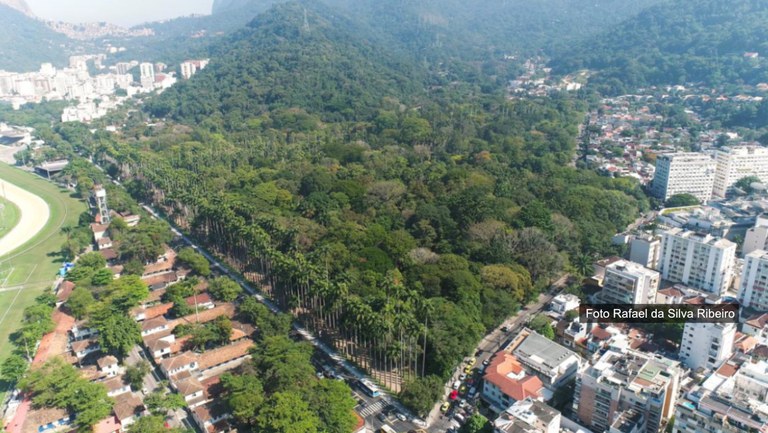Notícias
Study at JBRJ indicates the importance of tropical botanical gardens in tackling climate change

For all to see: aerial photo shows the treetops at the Rio de Janeiro Botanical Garden Arboretum | Photo: Rafael da Silva Ribeiro
A group of researchers and specialists from different sectors of the Rio de Janeiro Botanical Garden published an article on October 4 that shows the potential of tropical botanical gardens for mitigating and adapting urban areas to climate change.
The study took measurements between April 2021 and September 2022 to quantify the stocks of biomass and above-ground carbon (AGB and AGC, respectively) in trees in the arboretum of the Rio de Janeiro Botanical Garden, arriving at a total estimate of 4,024 tons of above-ground carbon. The finding is that the density of biomass and carbon stored per unit area in the JBRJ is only slightly lower than the density stored in Brazil's main forest complexes, the Atlantic and Amazon forests, but much higher than in many cities around the world.
“Our results suggest that, in addition to their global importance for plant conservation, tropical botanical gardens could function as significant carbon sinks within the urban matrix,” write the authors.
The article was published in the Journal of Zoological and Botanical Gardens and is available online.